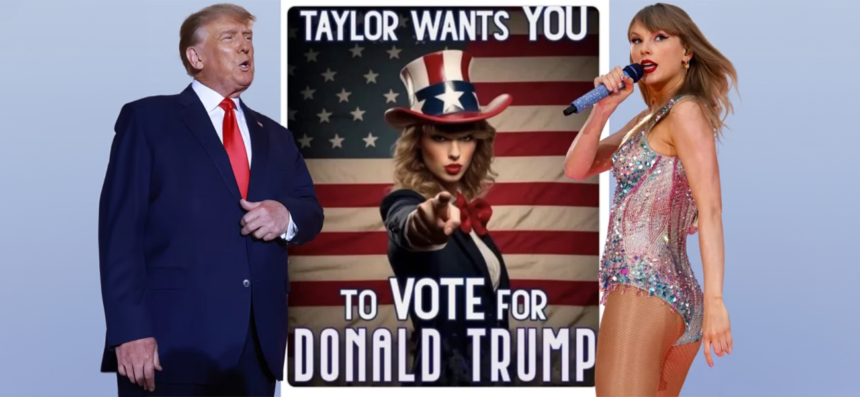- Trump shares AI Taylor Swift endorsements
- Legal experts question ELVIS Act’s applicability
- Regulators struggle to address AI in political campaigns
Shake It Off, or Shake Up the Law?
Former President Trump’s recent Truth Social posts featuring AI-generated images of Taylor Swift endorsing his campaign have ignited a firestorm of legal questions.
These memes, which depict Swift and her fans supporting Trump, raise concerns about the use of AI in political campaigns, especially when misrepresenting celebrity endorsements.

The pop icon, who publicly supported the Biden-Harris ticket in 2020, has not yet commented on the 2024 election, making these fabricated endorsements particularly controversial.
ELVIS Has Left the Building (But Might Come Back)
Tennessee’s newly minted ELVIS Act, designed to protect artists from unauthorized AI imitations, could potentially come into play.

However, experts like IP lawyer Noah Downs note that the act’s focus on audio impersonation might limit its applicability to image-based deepfakes.
The law’s newness means its exact parameters are yet to be tested in court, leaving room for interpretation in cases like this.
The FEC Factor
The Federal Election Commission’s stance on AI-generated political communications remains unclear for this election cycle. Meanwhile, the FCC is moving forward AI transparency requirements for TV and radio ads, but these don’t cover social media posts by politicians.
The stakes are high, given Swift’s enormous cultural influence and potential impact on voter turnout. Research shows that more than half of U.S. adults consider themselves Swift fans, a significant number in the context of electoral politics.









